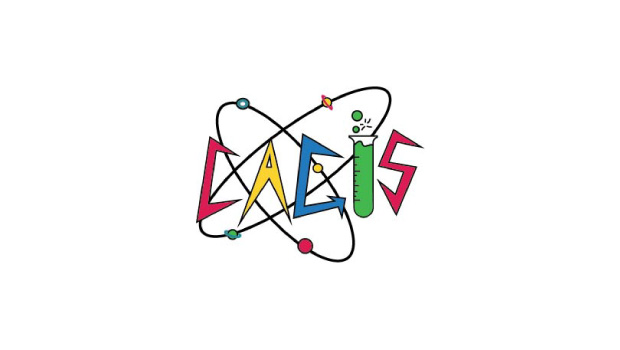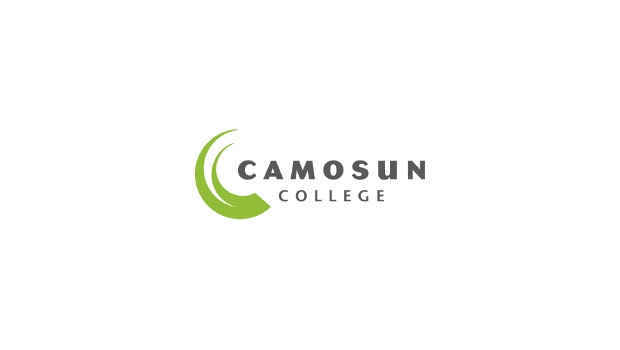
Biofuels, Bioreactors, Batteries, Waste Management, Sustainable Agriculture
Join the University of Manitoba and Science First for (FREE) Virtual Science Public Talks.
In celebration of Science Literacy Week Talk!
7:00 PM – 8:00 PM
Via Zoom – link coming soon!
Our Guest Speakers are:
Dr. Richard Sparling, Professor, Department of Microbiology – Making Money from Trash
Dale Overton, CEO Overton Environmental Enterprises Inc. – Organics Waste Management, Sustainable Agri-Systems, Soil Ecology and Revegetation.
Dr. Olivia Wilkins, Assistant Professor, Department of Biological Sciences – Systems Biology, Climate Resilient Plants.
Dr. Christian Kuss, Assistant Professor, Department of Chemistry – Material Science, Batteries/Electric Vehicles

Book Launch for Schools: The Energy Adventures of Tommy and Remi
Future Energy Systems is proud to present The Energy Adventures of Tommy and Remi, an educational children's book series. Tommy and Remi, energy adventurers, explore the world of energy and climate change in search of ways to make a difference. In their debut adventure, The Mystery of the Glowing Light, they charge into the shocking world of electricity and the electrical grid. With the help of their science consultant Reginald and new friend Nik, they learn how electricity is generated and transmitted all the way into their homes. They also learn how they can reduce how much electricity they use!
Have your class join the creative team behind this series on Friday, 24 September, 2021 as they launch the first adventure with Tommy the dog and Remi the cat, who are investigating the mysteries of the electric grid. A live reading of the book will be followed by a Q and A and shared on digital resources. This event is recommended for Kindergarten to Grade 5. This event is presented as part of Science Literacy Week 2021, which runs concurrently with Energy Week.
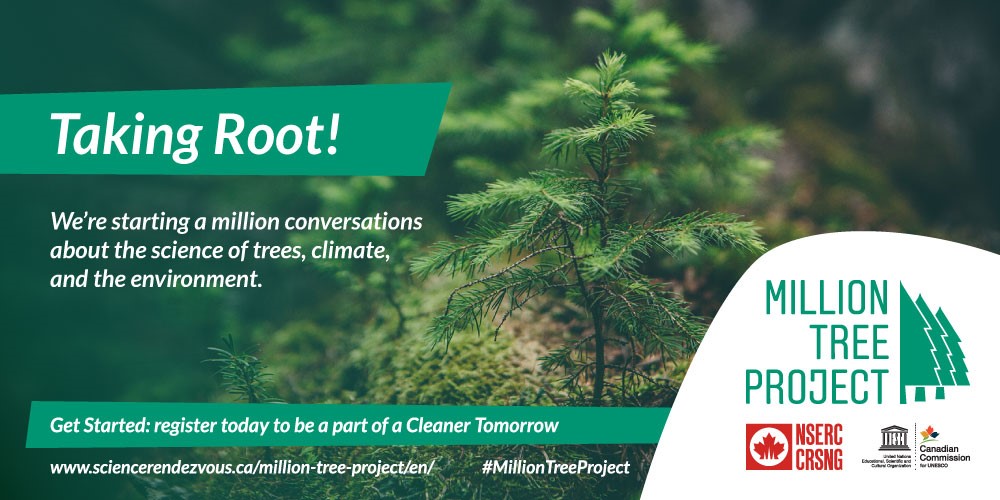
Think Like A Tree (held virtually – seedling pickup in Victoria or Vancouver)
Did you know that September 22 is National Tree Day in Canada? We have partnered up with Science Rendezvous and their Million Tree Project to bring our members and their friends a tree planting event! At this event, we will be learning about the importance of trees in our environment, in their ecosystems, and participants will have a chance to take home and plant a tree (while supplies last)! We will also discuss key considerations with planting trees and why planting trees can help our planet.
.
Date: Saturday, September 25, 2021
.
Time: 10:00AM - 11:00AM PT
.
Supplies list: gardening tools (e.g., hand shovel, gloves, watering can), tree sapling (picked up from a Coordinator in a central location)
.
Email Vancouver@GirlsInScience.ca or Victoria@GirlsInScience.ca by September 23rd if you are interested in attending.
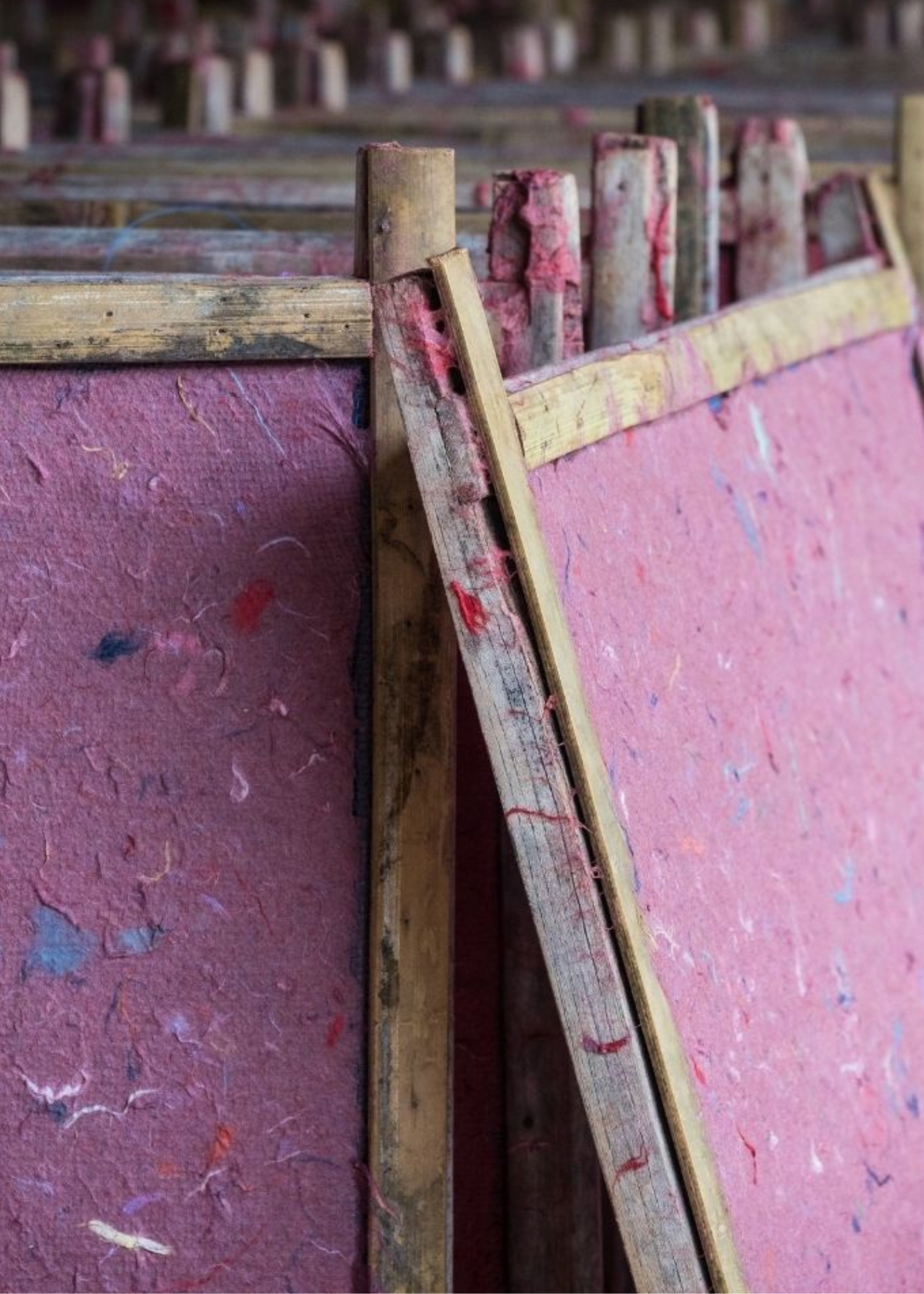
Papermaking at Home – Ages 7 to 12
Did you know that paper was invented over 2000 years ago, and most Canadians use 308 kilograms of paper per year? In this session, we will be making our own handmade paper from recycled scraps. Gather your scrap paper and learn about environmental sustainability and the chemistry of paper manufacturing.
.
Preparation: blender with adult supervision, scrap paper, water, paper towels or rags, a large plate or surface to work on. Optional: pantyhose and a wire coat hanger, a large plastic tub, things to add to the paper (dried flowers and leaves, coloured paper)
.
Expert: Botanical PaperWorks, an eco-company that makes plantable paper
.
Free for members, $16 for non-members

Papermaking at Home – Ages 11 to 16
Did you know that paper was invented over 2000 years ago, and most Canadians use 308 kilograms of paper per year? In this session, we will be making our own handmade paper from recycled scraps. Gather your scrap paper and learn about environmental sustainability and the chemistry of paper manufacturing.
.
Preparation: blender with adult supervision, scrap paper, water, paper towels or rags, a large plate or surface to work on. Optional: pantyhose and a wire coat hanger, a large plastic tub, things to add to the paper (dried flowers and leaves, coloured paper)
.
Expert: Botanical PaperWorks, an eco-company that makes plantable paper
.
Free for members, $16 for non-members

Tree Planting Event (held virtually, seedling pickup in Mississauga or Oakville while supplies last)
Join us at a virtual session to learn more about the role trees play in our environment, and how to plant a tree. While supplies allow, receive a free seedling to plant.
.
Date: Sunday, September 26
.
Time: 11am -12pm ET.
.
Email Oakville@GirlsInScience.ca for more information.
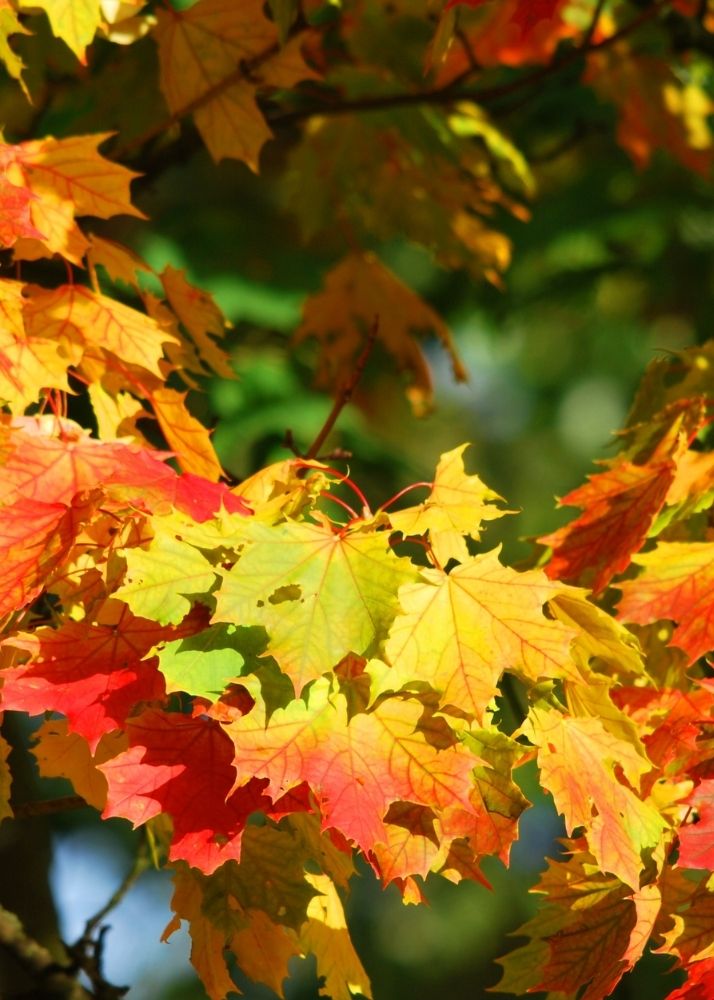
Leaf Chromatography – Ages 7 to 12
Can you be-leaf that it’s fall already? As the seasons change, so do leaf colours. But have you ever wondered where the colours come from and why leaves change colour in the fall? In this session, we will reveal the colours of fall leaves using a chromatography technique. Learn about leaf pigments, photosynthesis, and how leaves know when to change colours.
.
Preparation: green leaves from three (3) different plants, nail polish remover or rubbing alcohol (any percentage works), three (3) tall cups (that will hold the nail polish remover or rubbing alcohol), paper towels or coffee filters (white in colour if possible), scissors, tape, three (3) sticks (popsicles, chopsticks, or twigs)
.
Expert: Dr. Gerry Gourlay has a PhD in forest and tree biology from the University of Victoria and is a volunteer Coordinator of CAGIS Victoria.
.
Free for members, $16 for non-members.

Leaf Chromatography – Ages 11 to 16
Can you be-leaf that it’s fall already? As the seasons change, so do leaf colours. But have you ever wondered where the colours come from and why leaves change colour in the fall? In this session, we will reveal the colours of fall leaves using a chromatography technique. Learn about leaf pigments, photosynthesis, and how leaves know when to change colours.
.
Preparation: green leaves from three (3) different plants, nail polish remover or rubbing alcohol (any percentage works), three (3) tall cups (that will hold the nail polish remover or rubbing alcohol), paper towels or coffee filters (white in colour if possible), scissors, tape, three (3) sticks (popsicles, chopsticks, or twigs)
.
Expert: Dr. Gerry Gourlay has a PhD in forest and tree biology from the University of Victoria and is a volunteer Coordinator of CAGIS Victoria.
.
Free for members, $16 for non-members.
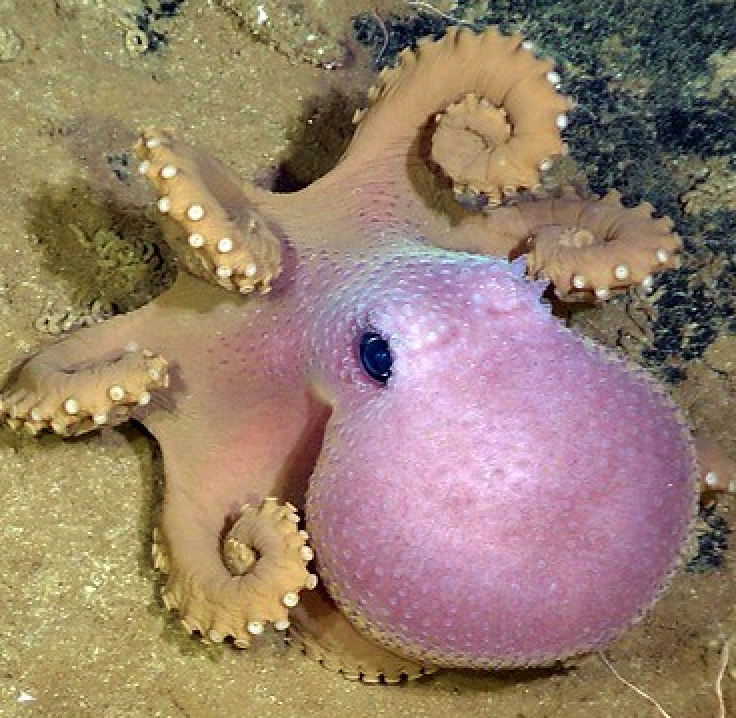
A Warming Ocean: Causes, Consequences, and Solutions
Join our team of certified BC teachers from Ocean Networks Canada for a free 4-part series (30-45 min/session) on climate science. The series is offered virtually or in person during October, November, and December and examines the causes of climate change and, through hands-on activity videos, authentic data, and Inuit Traditional Ecological Knowledge (TEK), impacts of climate change. A student-led discussion is encouraged to empower students to build on their knowledge and propose effective and immediate local solutions to reduce human-caused climate change (https://youtu.be/8d3lnEEBoco). Choose a time that works for you at the registration link.
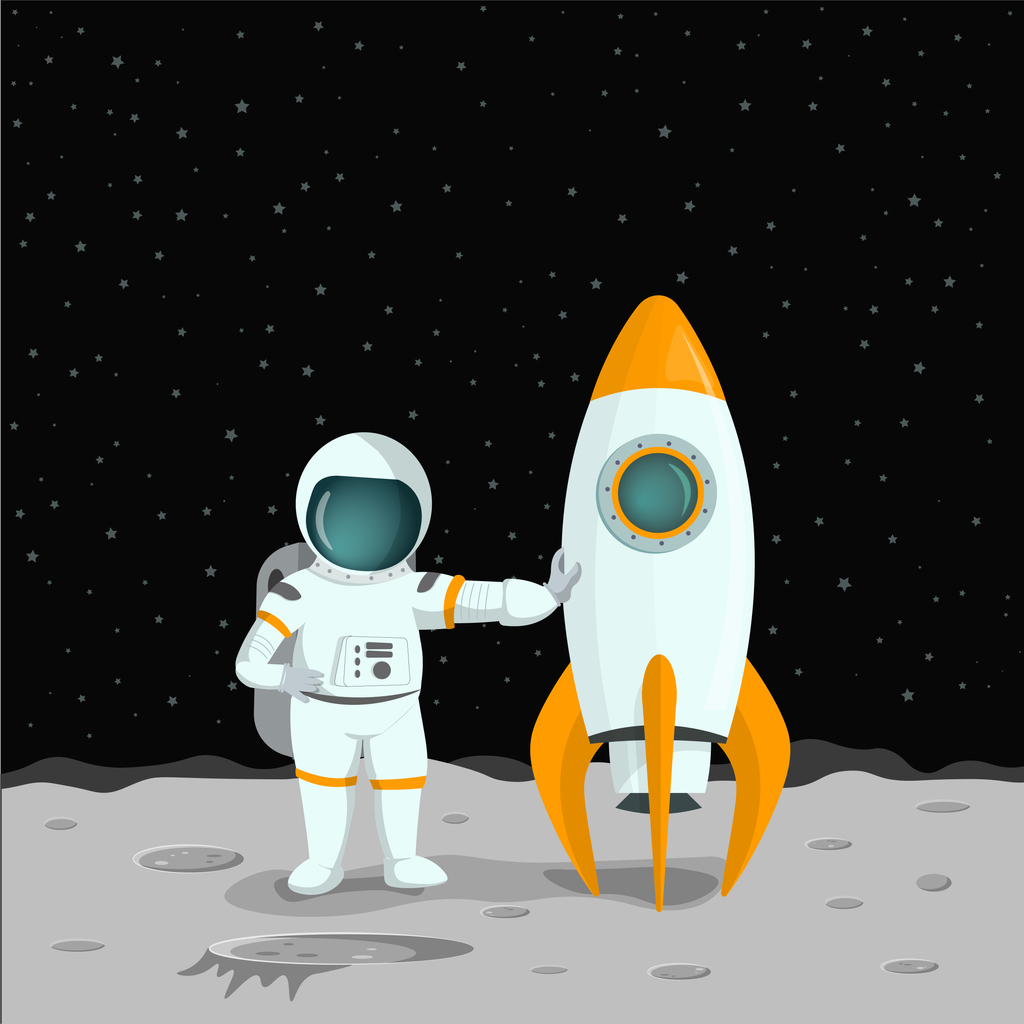
Let’s Talk Lunar: Why the Moon?
Register today to join world-renowned scientists, visionaries and experts for a discussion about the exciting journey to the moon, the underpinning technology and how it's all connected to daily life.
Let's Talk Lunar: Why the Moon? How space science shapes our life on Earth is brought to you in partnership with the Canadian Space Agency.
Blast off on a journey of learning today
Join our team of certified BC teachers from Ocean Networks Canada for a free virtual or in-person presentation on Marine Biodiversity, Hydrothermal Vents, Clam Gardens, Seismic Studies, Climate Science or Remotely Operated Vehicle Exploration. Select a time in October, November, or December that works for you at the registration link.
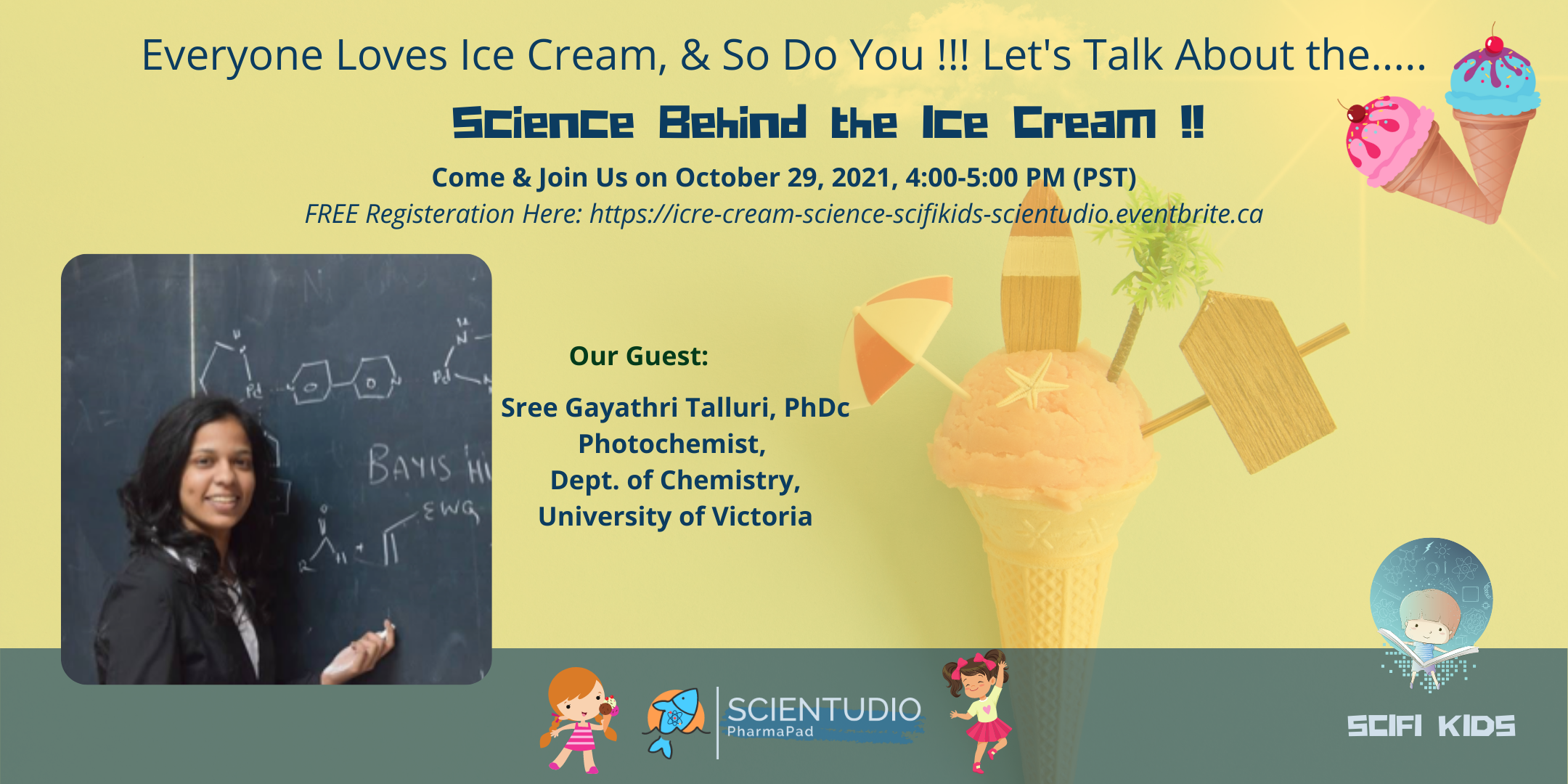
Science Behind the Colors and Ice-Cream
Have you ever wondered what makes something a popsicle or a gelato despite both being prepared from the same ingredients? What happens when you add salt to an ice cream? Do you know how ice creams can be made within seconds?
.
And have you ever wondered why jellyfish glow in dark? How can we distinguish between a fake currency and an actual currency when both look the same? Do you know that spiders do glow under certain situations?
.
JOIN THIS HANDS-ON SESSION TO EXPLORE THE SCIENCE BEHIND THE COLORS & ICE CREAM WITH SREE.
.
BONUS: Try a hands-on activity to make your own home ice cream (list of ingredients will be sent to the registrants 72 hours before the event).
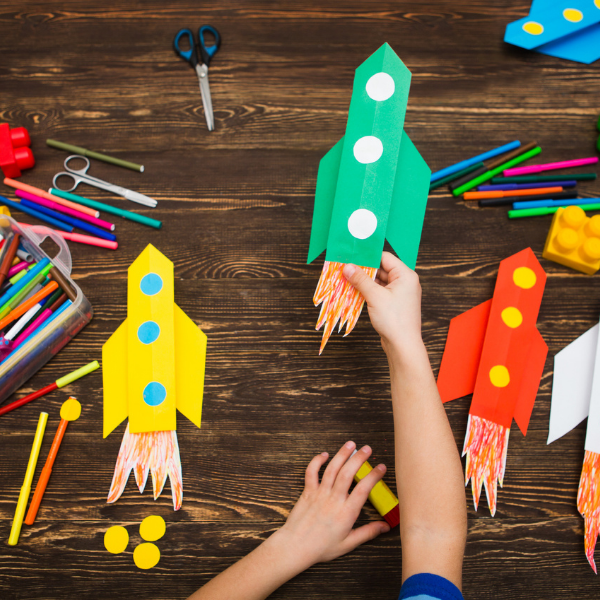
STEM Club
Join us with your class for fun and interactive STEM activities intended for Grade 4-6 students! Each week features a different hands-on activity using minimal, easy-to-find materials. Students will also have the chance to learn from and ask questions to inspiring STEM role models. STEM Club is ideal for busy educators and caregivers, no matter what their learning environment looks like!
An English activity is offered two times per week (Tuesdays at 11:30 a.m. ET & Wednesdays at 1:00 p.m. ET), and a French activity is offered once a week (Tuesdays at 1:00 p.m. ET).
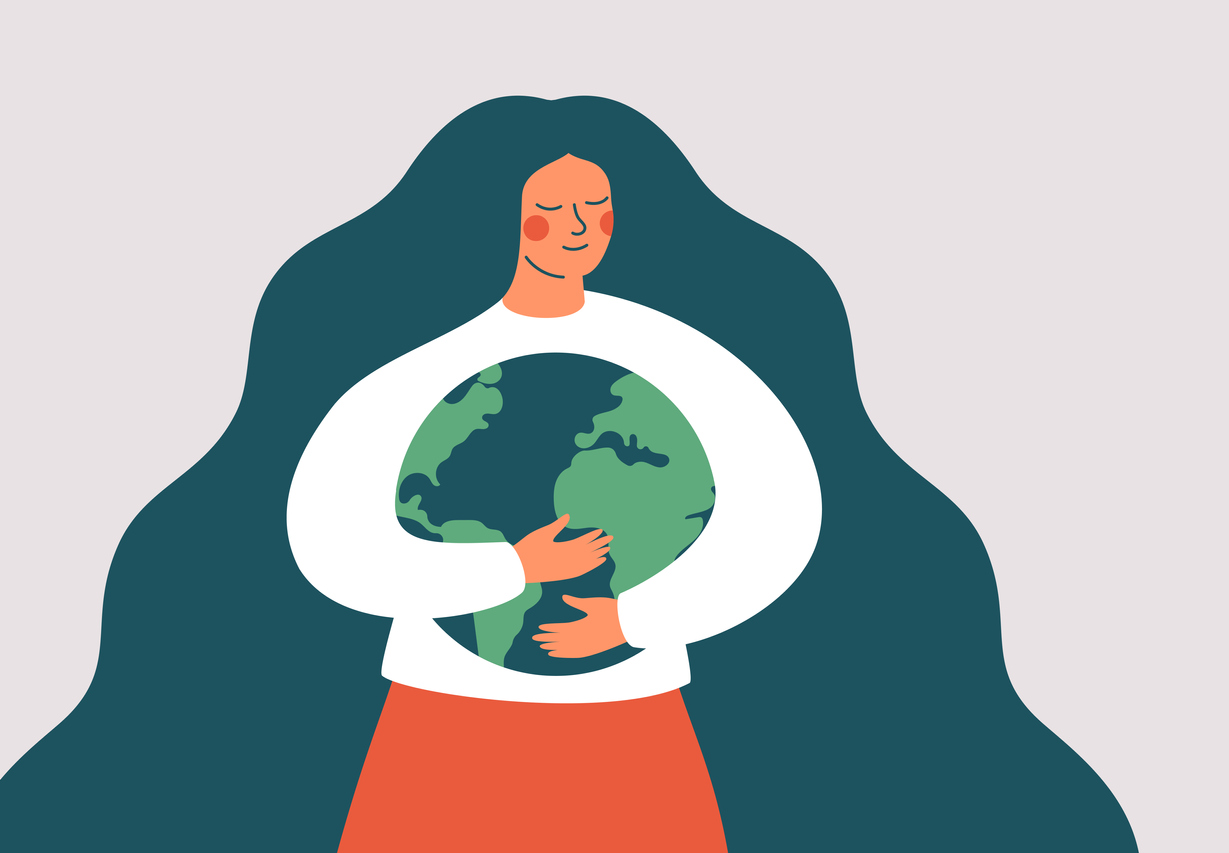
Let’s Talk One Health
What does health mean in the coming years and decades? How does the ongoing global pandemic shift our thinking?
Discover a leading-edge way of thinking by exploring the concept of One Health.
One Health is the interconnectedness of systems across human, animal and ecological determinants of health. From the most simple organism to the most complicated one, when it comes to health, we are all linked.
This connection ensures wellness when health is supported and risks nefarious effects, as shown by the COVID-19 pandemic when it is not.
Join a panel of world-renowned scientists, visionaries and researchers to learn more about One Health. Participate in a leading-edge discussion touching upon Indigenous knowledge systems and how this concept can hold the key to managing the next global crisis. As part of the panel, David Saint-Jacques, Canadian Space Agency astronaut will deliver a keynote around One Health and his personal experience with the concept.
Let’s Talk One Health is brought to you in partnership with the Canadian Space Agency, Genome Canada and the Royal Society of Canada.
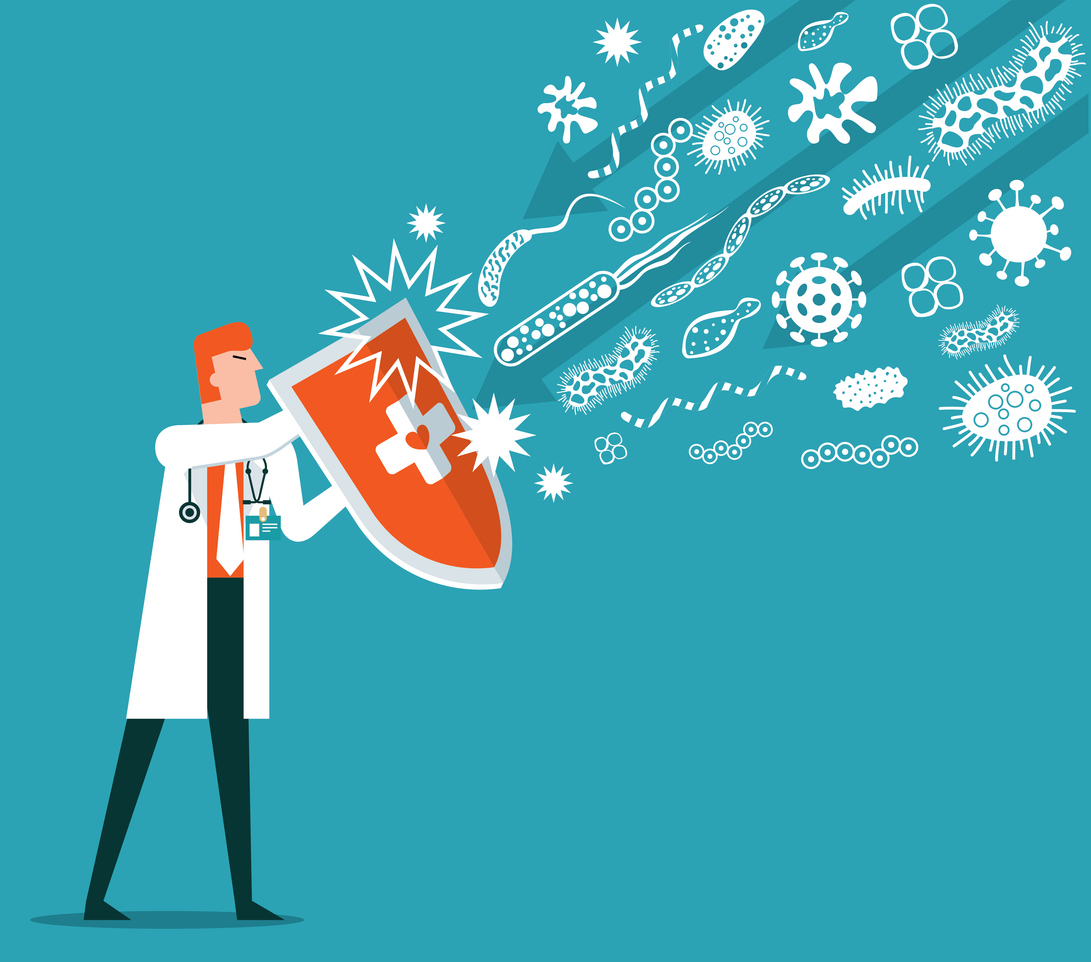
Let’s Talk Microbes
Microbes are all around us, and while some help us, many can cause harm. For many years humans and microbes have been in an arms race of protecting ourselves versus them resisting our latest technologies. In recent years, microbes have been winning.
Join our panel of world-renowned scientists to learn how the science of genomics is changing our battle against the microbes – from health to food, to the environment, to the very future of antimicrobials.
Let’s Talk Microbes is brought to you by Genome Canada.

Energy Storage: A Piece of Cake? | Energy In A Flash
Work from the Buriak lab with a with a delicious analogy can be watched here https://youtu.be/hYm54H3BMzg. For more work see https://spaces.facsci.ualberta.ca/buriak/.
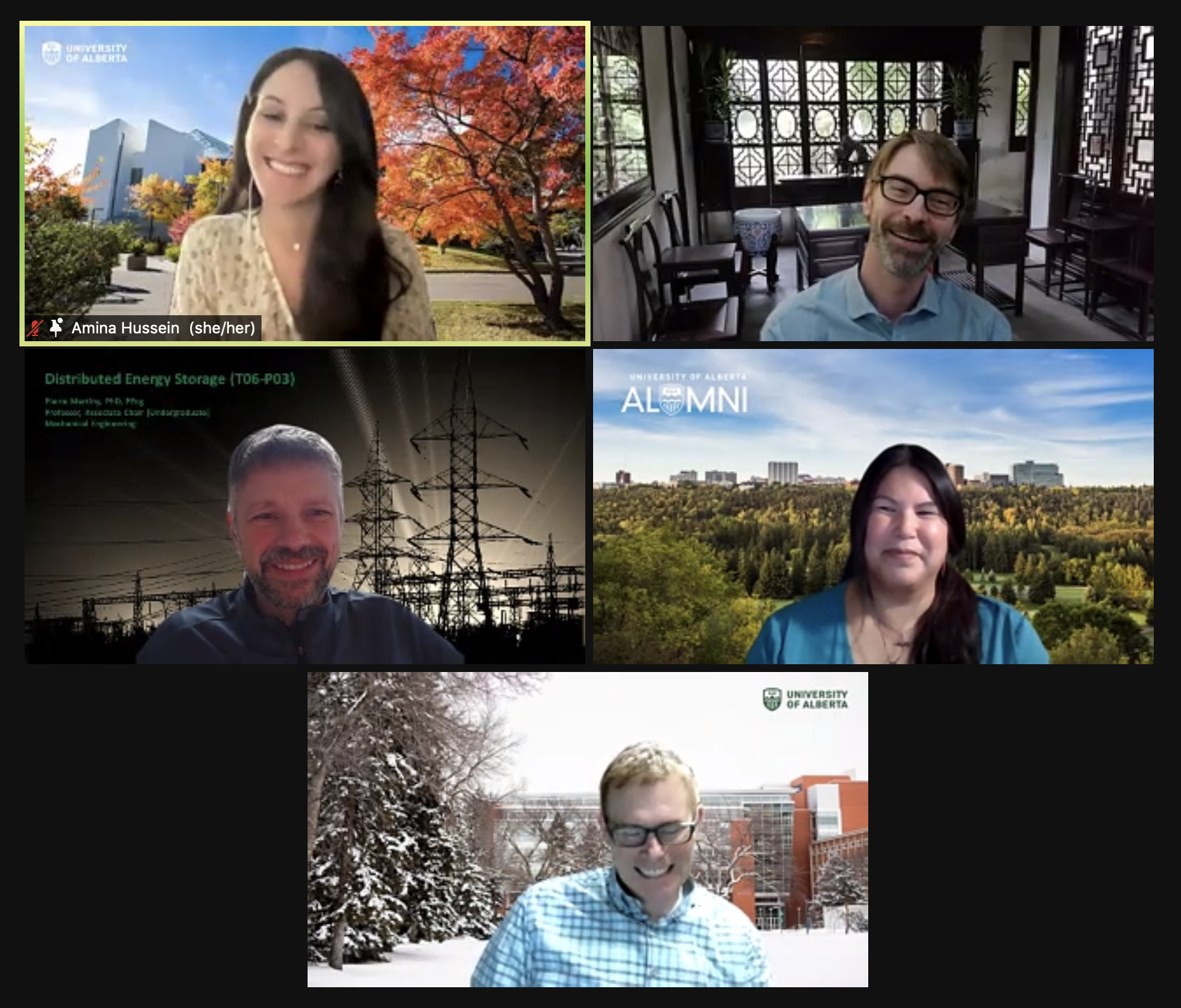
Introduction to energy systems: What is an “energy system”, anyway?
Why do we need to talk about systems? In this session, we will discuss the basics of how to understand and analyze a system, what, specifically, an energy system is, and why energy systems are important in society. Energy system components will be introduced, as well as jurisdictional commonalities and differences. Video can be watched here https://youtu.be/UPA0KxJ7hSM.
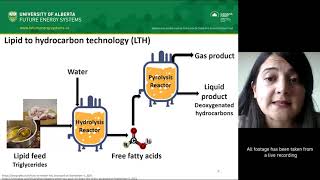
Production of Renewable Jet-Fuels | Energy In A Flash
According to the International Renewable Energy Agency, if the aviation sector were a
country, it would be the eight largest emitter of greenhouse gases globally. Thus, lowering
the greenhouse gas emissions of the aviation sector has become an important factor to
mitigate the effects of climate change. Lipid to hydrocarbon technology (LTH) is a novel technology that can convert a variety of lipid feedstocks into various chemicals and solvents, as well as gasoline and diesel fuels. LTH can be used to convert waste oils and fats to renewable biojet fuels that can be used as an alternative to the current fossil-based fuels. But there is still much work needed to be done to produce the biojet fuel for commercial purposes in a cost-effective manner. The aim of this project is to scale up the biojet production technology from lab-scale to bench-scale in a 1-liter reactor using light reactive gases in order to produce renewable biojet fuel with qualities similar to fossil-based fuels.
You can watch this talk here https://youtu.be/x0y_hr_fDMs.
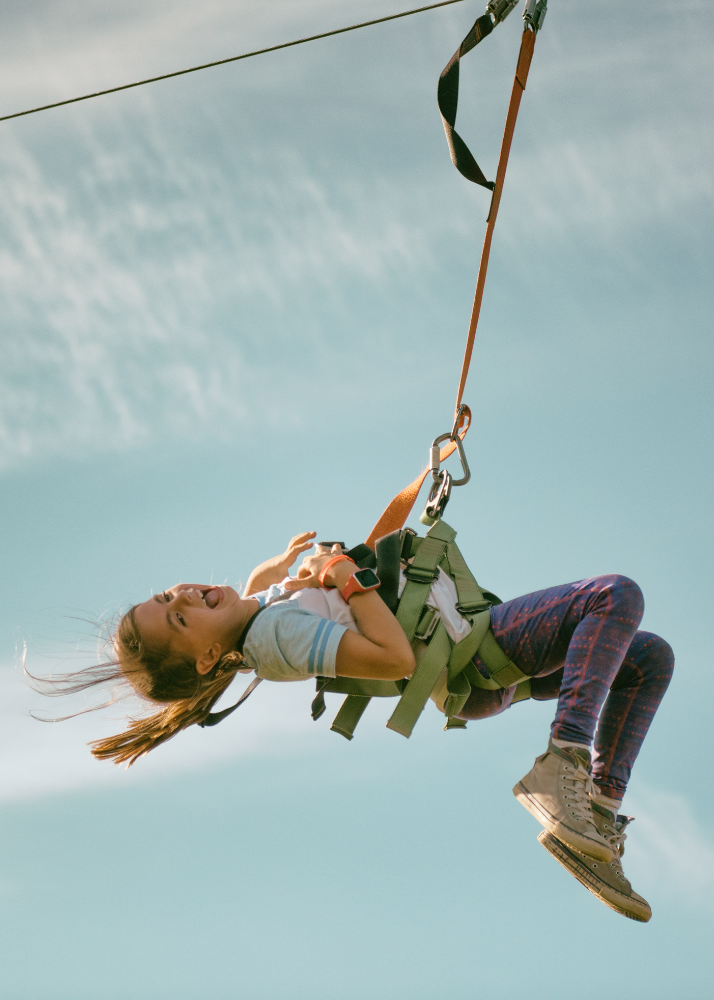
Build a Zip Line Activity (Ages 7-12)
While most zip lines are now used for entertainment, they were created to transport people, carry supplies across rugged terrains, and for biologists to research rainforests without disturbing animal habitats. In this session, we will be making zip lines to transport small objects across a room! Learn about physics, friction, and the safety engineering behind these fast contraptions.

Build a Zip Line Activity (Ages 11-16)
While most zip lines are now used for entertainment, they were created to transport people, carry supplies across rugged terrains, and for biologists to research rainforests without disturbing animal habitats. In this session, we will be making zip lines to transport small objects across a room! Learn about physics, friction, and the safety engineering behind these fast contraptions.

